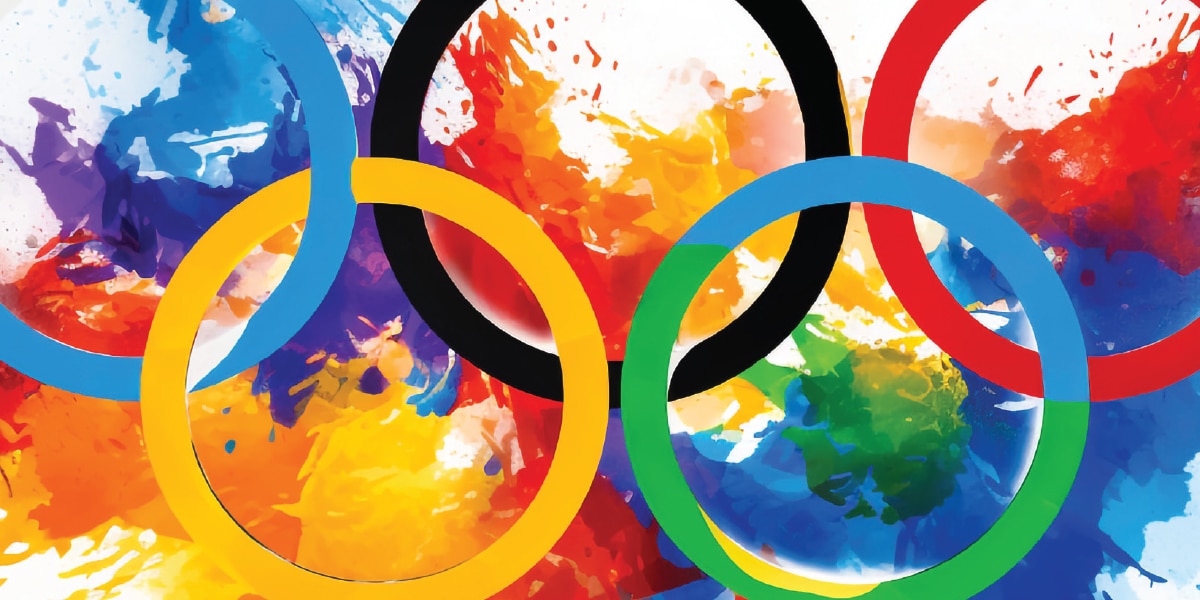Whenever the Summer Olympics roll around, I pay quiet homage to Jesse Owens, barrier-breaker and godfather of the games (in this writer’s opinion). History can never adequately do him justice, but it’s fair to say his four gold medals in the 1936 Olympics in Berlin proved Hitler’s Aryan superiority complex was a lie. Not only did he dominate his events, Owens, the son of sharecroppers and grandson of enslaved people, proudly represented a country that was not good to him in kind.
But the Olympics shouldn’t be political. On the contrary: The games are a distraction from it. The Summer Olympics always fall during a presidential election year, and the two-week reprieve from that noise is a blessing. The Olympics is an arena that showcases the best of athleticism and performance—and there are athletes throughout its history, alongside Jesse Owens, who can inspire us armchair spectators.
Here are three others.
Dan O’Brien
Decathlon/Track and Field, 1996, Atlanta
Dan O’Brien is a living lesson in focus and ignoring a world of deafening naysayers. Favored to win decathlon gold in 1992 but failing to even qualify, O’Brien faced an unkind world press. But credit to this athlete for shaking off one battle while keeping his eyes on the war. O’Brien recentered and shifted his gaze to Atlanta, 1996. His road to it was paved in gold, winning in Stuttgart and Toronto in 1993 and Gothenburg in 1995. Then, in Atlanta, winning the decathlon forever quieted his critics. O’Brien is a role model for anyone who has been knocked down.
Cathy Freeman
400-meters/Track and Field, 2000, Sydney
Imagine the pressure: an Indigenous Australian touted as the favorite to win the 400-meter on her home turf. That level of stress can rattle even the most stalwart athlete, but Cathy Freeman was cool and calculated when it counted. Her Indigenous brothers and sisters had fought for representation long before Freeman was born, so there was more at stake in 2000 than a medal: One got the sense that she was carrying the weight of Aboriginal Australians when she crossed the finish line. She is considered, still today, one the greatest Olympians in track and field history.
Mallory Weggemann
50-meters/Swimming, 2012, London
Olympians are conditioned to push through adversity. And few athletes exemplify that better than Mallory Weggemann. After a botched epidural in 2008 left the swimmer paralyzed from the waist down, within four months she was back in the pool. Competing in the 2012 Paralympics, Weggemann not only won gold in the 50-meter freestyle, but she set a record time. For her efforts, USA Swimming named her Disabled Athlete of the Year three times in a row (2009–2011).
‘Run So As to Win’
While collegiate and professional sports are big business in this country, the Olympics feel like a purer celebration of sport somehow. Athletics, in fact, have roots in the New Testament. “Do you not know that the runners in the stadium all run in the race, but only one wins the prize? Run so as to win” (1 Cor 9:24) is but one example. God loves a good contest.
Truly, there is something noble about athletes who gather every four years to represent their countries. Sports, at its best, is an equalizer: Athletes are judged by how they compete—irrespective of skin color, political party, religion, net worth, or nationality. And as spectators, we are very much a part of this time-honored celebration. Let’s play.








